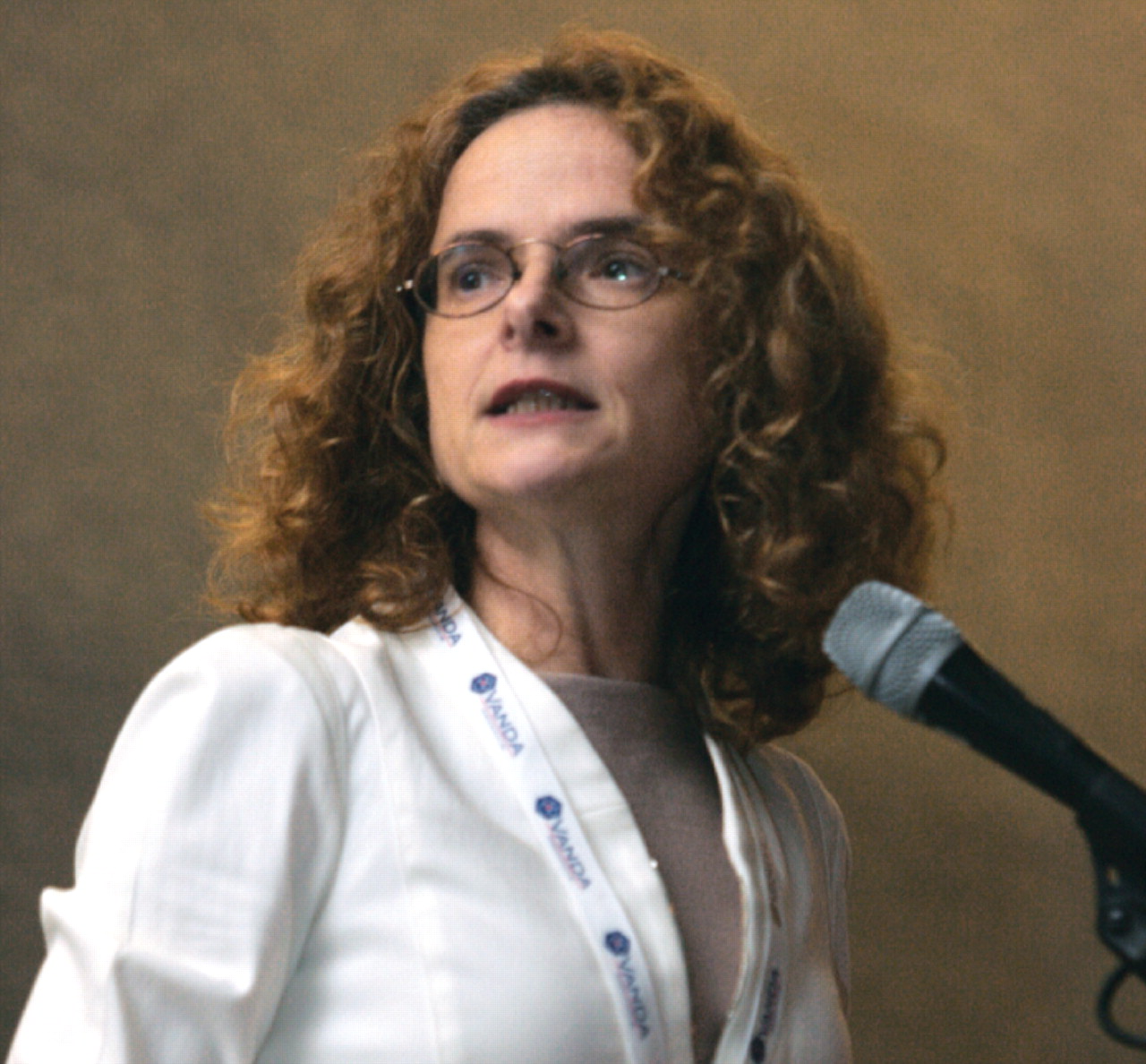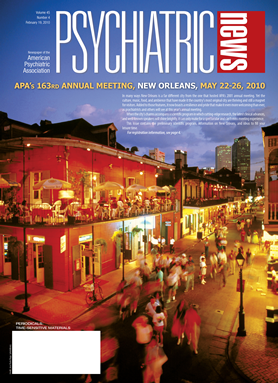Exciting advances in brain research and clinical innovations that are likely to improve the treatment of a range of psychiatric disorders—not just addiction—will be presented in the special track sponsored by the National Institute on Drug Abuse (NIDA) at this year's annual meeting.
Neuroscience has made great strides in uncovering the neurological processes that maintain the balance of impulsivity and self-control, which are crucial to understanding addiction and other psychiatric symptoms intertwined with cognitive functions. These discoveries also suggest potential treatments for addictive disorders that target the faulty brain regions. Several programs in the NIDA track will present these research findings and their implications for clinical use.
The director of NIDA, Nora Volkow, M.D., will give a lecture on Tuesday, May 25, titled “Addiction: Conflict Between Brain Circuits.”
“I'm pleased to be speaking to my psychiatric colleagues about the neuroscience of addiction as a ‘Conflict of Brain Circuits,’” Volkow told Psychiatric News. “We know that addiction is a complex behavioral disorder with key components of preexisting predisposition, memory and learning, motivation and drive, balanced by circuits involved in judgment and decision making.” Thanks to recent research, “we can appreciate the nature of addiction as a condition in which these neural circuits are relatively out of balance.” An understanding of these mechanisms, she believes, will help develop successful prevention and treatment strategies.
“Executive Function as a Brain System for Self-Control: The Neurocircuitry of Psychiatric Disorders and Addiction,” a symposium on Saturday, May 22, will focus on executive function and self-control, including the neurocircuits responsible for controlling impulses and making decisions, the role of dopamine, and how dysfunctions in the circuitry present in schizophrenia, substance abuse, and other psychiatric disorders.
Two additional sessions will explore the mechanisms of reward neurocircuitry and the learning and memory system and offer explanations for impairment in addiction, posttraumatic stress disorder, and other psychiatric disorders. The symposium “Reward Neurocircuitry in Substance Dependence and Other Psychiatric Disorders: What Does Brain Research Tell Us?” will be held on Tuesday, May 25. The symposium “How Dysfunction of Learning and Memory Circuits Contributes to Substance Abuse and Other Psychiatric Disorders” will take place on Wednesday, May 26.
Ample Clinical Advice Presented
In addition to new discoveries from the laboratory, the NIDA track also features numerous sessions with clinical advice immediately useful in practice. A symposium on Saturday, May 22, titled “Smoking in Psychiatric Disorders: Clues About Causal Pathways and Innovative Treatment Approaches,” will highlight research into the mechanisms of and effective treatments for smoking cessation in patients with schizophrenia and other psychiatric disorders. On Sunday, May 23, attendees can learn about women-specific issues in drug-abuse treatment at a symposium in the morning titled “Sex/Gender Differences and Women-Specific Issues in Drug Abuse: Predicting and Improving Treatment Outcomes” and strategies for managing long-term treatment for opiate dependence at the afternoon workshop “Maintenance Treatment for Opiate Dependence: Terminable or Interminable.”
The symposium “Update on Medication Development: Promising New Treatment for Drug Addiction” will report research findings on modafinil in treating cocaine addiction, D-cycloserine for cocaine and nicotine dependence, bupropion for methamphetamine addiction, dronabinol for cannabis addiction, and a nicotine vaccine for nicotine addiction. The symposium will be held on Monday, May 24.
Federal Drug Official to Speak
In addition to symposia and workshops, several lectures will be given on key topics. A. Thomas McLellan, Ph.D., will give a lecture on federal policies and strategies addressing addiction and substance abuse on Tuesday, May 25. McLellan is deputy director of the White House Office of National Drug Control Policy.
Karl Deisseroth, M.D., Ph.D., an associate professor of bioengineering and of psychiatry and behavioral sciences at Stanford University, will give an overview of the development and application of optogenetics on Monday, May 24. Optogenetics is a new field of research that combines genetic engineering with light to probe and illuminate the activities of neurons.
In addition, Julio Montaner, M.D., a professor of medicine, chair of AIDS Research, and head of the Division of AIDS at the University of British Columbia, will provide an update on treatment and prevention strategies for HIV illness on Wednesday, May 26.
The entire NIDA track is “filled with outstanding science,” Volkow emphasized. She is encouraging annual meeting attendees to take a close look at all the addiction-related presentations offered. The basic and applied addiction research is very relevant to other psychiatric practice areas, she noted.
“NIDA is excited and pleased to work with APA to address ways to advance the practice of psychiatry through the science of addiction,” said Volkow. “Scientific advances give hope to clinicians and patients for better prevention and treatment of addiction and related mental illnesses. Recognizing the overlap at descriptive, clinical, and neurophysiologic levels of addictions with many other psychiatric disorders is an essential part of this advancing science.”
The complete schedule of programs in the NIDA track will be published in a future issue and distributed on site at the annual meeting. 

